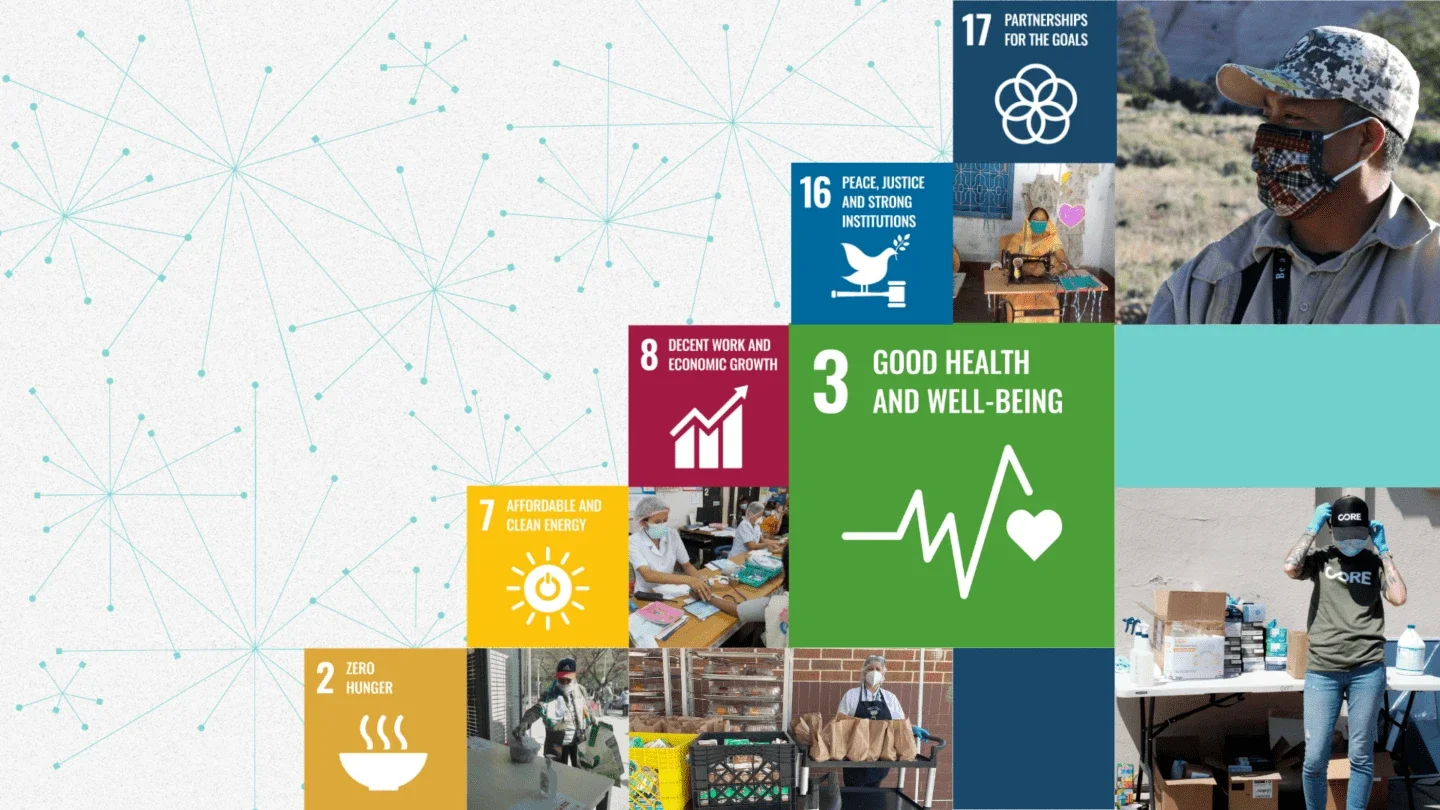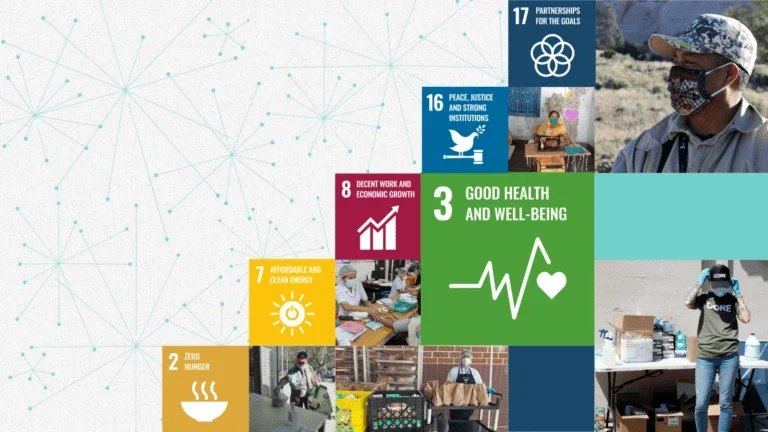The Covid-19 pandemic has exposed and accelerated unprecedented inequalities around the world. While every country has felt the impact of the novel coronavirus, those with rampant inequality – especially the United States – have been hit the hardest. Covid-19 has worsened cracks in health systems that existed long before the pandemic. It perpetuates the never-ending cycle that the most vulnerable people face – poor access to care that leads to poor health outcomes and unnecessary suffering.
In the U.S., Covid-19 has exacerbated deep-seated health disparities based on race and social determinants of health – indicators like income, education level and physical environment that impact health outcomes. African American, Latinx American, and Native American communities are hit hardest by the pandemic and at significantly higher risk of severe disease and death due to Covid-19 (Covid Tracking Project, 2020). The bitter truth is that your zip code and skin color can determine your risk for severe disease and death in 2020.
Marginalized communities hit hardest by Covid-19 are less likely to have access to point-of-care testing and health care services. People from some racial and ethnic minority groups face racism and discrimination in healthcare settings and are more often uninsured, limiting access and utilization of care (CDC, 2020). This means they are even more impacted by disruptions caused by the pandemic to essential services such as immunization, maternal care, and treatment of chronic diseases that are affecting the entire population.
Black Americans are more likely to be exposed to the virus and fare poorly due to conditions such as structural racism and poverty and their downstream effects: crowded housing, more frequent asthma and diabetes, etc. (Washington Post, 2020). Minorities in the U.S. are also more likely to work essential jobs that cannot be done remotely, increasing the risk of Covid-19 exposure and unemployment as many jobs disappear. (New York Times, 2020).
America has the worst maternal mortality rate in the developed world, but the added stain of the pandemic will disproportionally impact women of color, who already have worse health outcomes. (New York Times, 2020). Hispanic and Black children are also more likely to be hospitalized with Covid-19 than their white counterparts (Washington Post, 2020).
Just as the impact of Covid-19 is unequal, the recovery from it threatens to be as well. When the pandemic ends, the systemic and structural factors leading to unequal health outcomes will remain. The privileged will recover faster and easier, while marginalized groups could feel the effects for years, if not generations, to come.
Covid-19 is trapping the most vulnerable Americans in a pernicious cycle that will continue unless we choose to break it – by focusing on equitable health reform and expansion of access to essential health services.
Coming out of this crisis, if we address the needs of people of color and marginalized communities who are disproportionally impacted by Covid-19, we will ultimately strengthen our health system to address all of our needs.
The pandemic will be with us for months, if not years, to come. But recovery must begin now.
If professional athletes can get routine tests, so should our teachers, students, essential workers, nurses, bus drivers, and others at risk – free of charge. Investing in ubiquitous testing, a cornerstone of The Rockefeller Foundation’s national testing plan, is not only equitable but also far cheaper than the cost of another economic shutdown. The equitable distribution of Covid-19 testing and contact tracing, supplies, and resources will pave the way for equitable distribution of vaccines when they are available.
While we grapple with the effects of an unprecedented global health emergency, we must also remain focused on continued, equitable expansion of health services in the U.S. and around the world. By working toward universal health coverage and mainstreaming portable benefits tied to work, rather than employers, we can ensure a more equitable recovery from the pandemic.
The challenges faced in the U.S. are faced in many other countries as well, including Brazil, South Africa, and India. As The Rockefeller Foundation participates in the 75th annual UN General Assembly, we are focusing on our efforts to drive an equitable global recovery and lift up the world’s poorest billion. A recent 17 Rooms event hosted by The Rockefeller Foundation brought together over 200 leading global health thinkers to accelerate progress towards Sustainable Development Goal 3 and Health for All.
The best antibody against future health threats is a world where we protect and support our most vulnerable. Covid-19 has been the opposite of a “great equalizer” – but expanded access to health care would be a good start toward that vision. The time is now to channel our energies into building more effective, more humane, and more equitable health systems for everyone.



